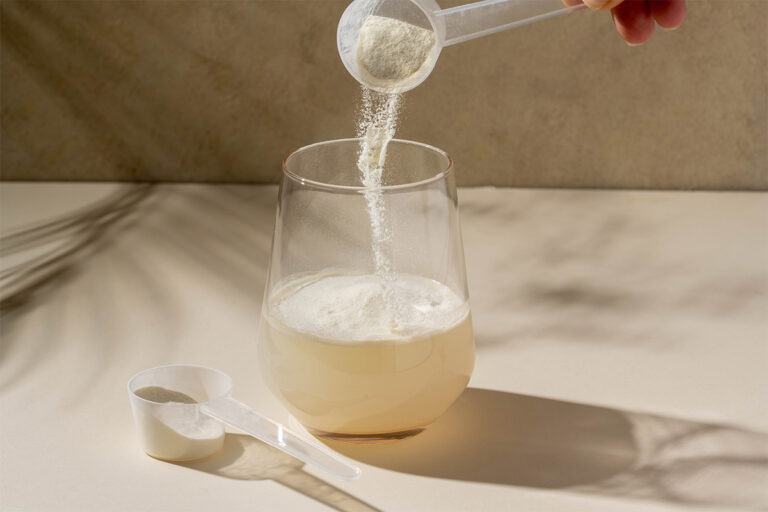Heart health is a leading concern worldwide. Thankfully, decades of research have demonstrated strategies for supporting heart health, including engaging in regular physical activity, maintaining a healthy weight, and adopting a heart-healthy diet. (11) But where do dietary supplements fit in?
Supplements containing antioxidants such as anthocyanins are increasingly recognized for their potential to support heart health by reducing oxidative stress, supporting healthy cholesterol levels, and addressing other heart health concerns. (3)(9)
Keep reading to learn about the benefits of recommending anthocyanins to your patients as well as heart healthy lifestyle recommendations.
Supporting heart health with anthocyanins
Anthocyanins are naturally occurring plant compounds that are responsible for the deep red, purple, and blue colors found in many fruits and vegetables. (7)
Anthocyanins are antioxidants, meaning they help protect cells from the damaging effects of free radicals. Research has shown that anthocyanins may offer an array of health benefits, including supporting cardiovascular health, inflammatory balance, and promoting healthy vision, to name a few. (7)

Dietary sources of anthocyanins
Anthocyanins are found in many foods, but particularly in dark-colored fruits and vegetables. Anthocyanins are most abundant in bilberries and blackcurrants. They can also be found in blueberries, raspberries, cherries, red cabbage, and red grapes. (9)
There isn’t an established dietary reference intake (DRI) for anthocyanins. (14) However, studies demonstrate that daily amounts exceeding 80 mg may be most beneficial. (5) Average dietary intakes among adults in North America are often far below these proposed recommendations. One report noted that adult women and men consumed 12.6 and 10.5 mg per day, respectively. (14)
Benefits of anthocyanins for heart health
Studies have shown that consuming anthocyanin-rich foods and taking supplements such as those containing bilberry and blackcurrant may support common heart health concerns. (17) Continue reading to learn how anthocyanins can help support your patients’ cardiovascular health.
Supports healthy cholesterol
Anthocyanins found in bilberries and blackcurrants have been associated with reductions in low-density lipoprotein cholesterol (LDL) and improvements in high-density lipoprotein (HDL) cholesterol. (18) In fact, a 2021 systematic review and meta-analysis demonstrated that anthocyanin supplementation as well as consumption of anthocyanin-rich berries may help to significantly improve blood LDL, triglyceride, and HDL levels. (17) Furthermore, a randomized, placebo-controlled, double-blind study involving 58 individuals noted that supplementation resulted in a 7.9% reduction in LDL, a 23% reduction in triglycerides, and an improvement of 19.4% in HDL levels. (8)

Supports healthy oxidative stress and inflammatory balance
Anthocyanins have been shown to help reduce certain inflammatory and oxidative stress markers associated with heart health. (2) The aforementioned systematic review and meta-analysis also demonstrated that consuming anthocyanin-rich berries helped to reduce pro-inflammatory mediators such as C-reactive protein. (17)
Supports healthy blood pressure
Some research suggests that anthocyanins may help to reduce blood pressure levels; however, evidence is limited and more research is warranted to substantiate these claims. (13)
Supporting heart health with lifestyle modification
In addition to dietary supplements, a balanced diet and physical activity can help maintain cardiometabolic health.
The Mediterranean diet
The Mediterranean diet is a general term for the traditional dietary and lifestyle habits of the countries located in the Mediterranean region (e.g., Greece, Spain). (10) The diet is made up of heart-healthy foods that contain antioxidants, fiber, and omega-3 fatty acids.
It has been praised for decades following research conducted in the 1960s that demonstrated a lower incidence of coronary heart disease among individuals living in the Mediterranean region. (12) Research indicates that adopting the Mediterranean diet may help support a healthy body mass index (BMI), blood pressure, and cholesterol levels. (16)
Download the patient guide: A guide to the Mediterranean diet
Physical activity
Physical activity should always be considered in any treatment plan aimed at maintaining or improving cardiometabolic health. A randomized controlled trial including 53 middle-aged people found that regular aerobic exercise and strength training improve maximum oxygen intake during exercise and plasticity in the left ventricular muscle of the heart. (6)
While the Centers for Disease Control and Prevention recommends 30 minutes of exercise per day, that recommendation should be considered the minimum and a great starting point for patients who are new to exercise. Just 30 minutes of moderate activity can help lower blood pressure, triglycerides, and inflammation, and increase HDL cholesterol levels. (4)(15)(19)
The bottom line
Recommending lifestyle modifications like regular physical activity and consuming a diet rich in antioxidants are effective strategies for supporting cardiometabolic health. In addition, dietary ingredients like anthocyanins also play an important role in supporting a healthy heart!
Want to learn more about the clinical applications of anthocyanins such as bilberry and blackcurrant? View our webinar today!






